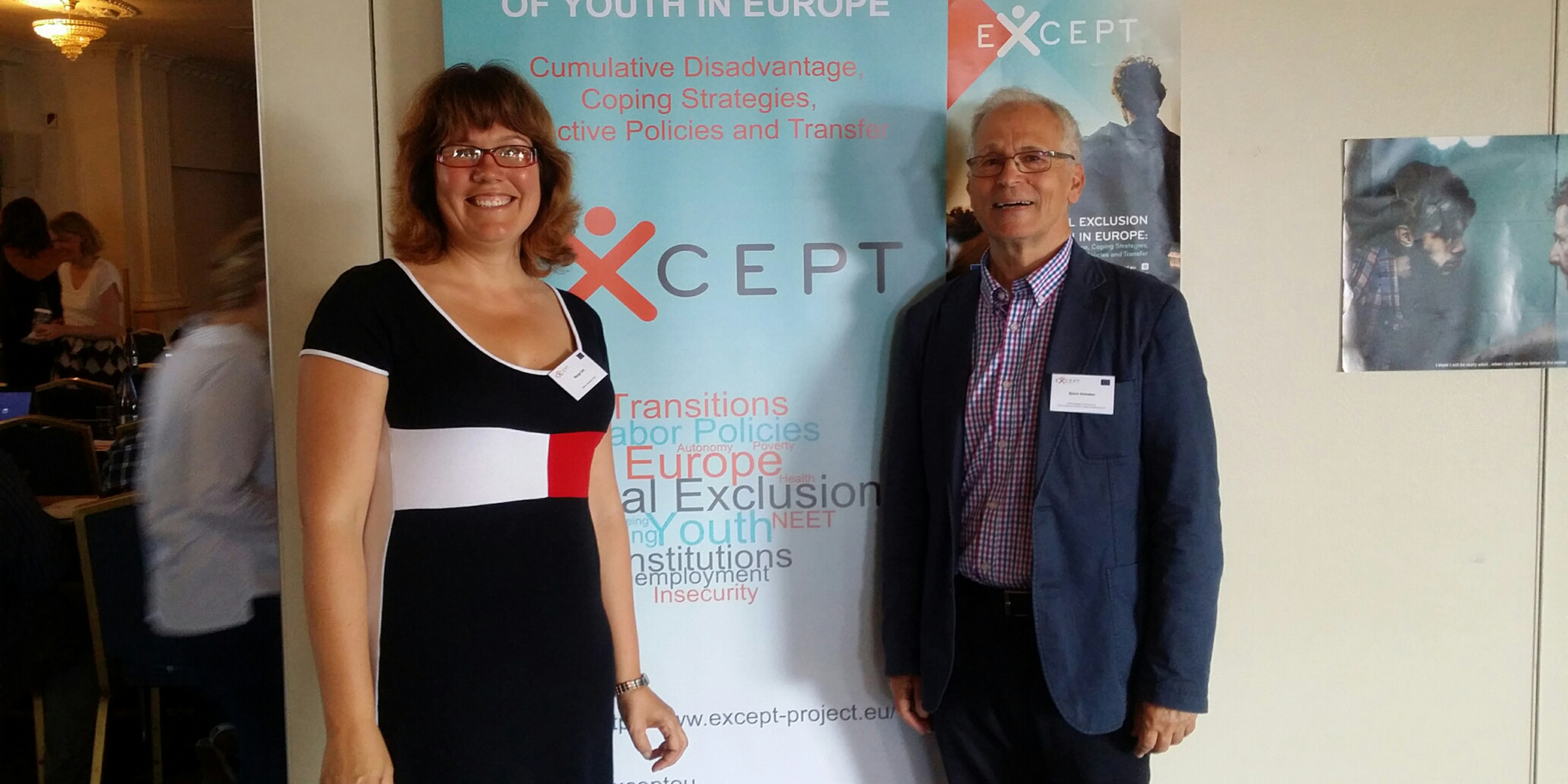Bjørn Hvinden the coordinator of the NEGOTIATE project visited the EXCEPT workshop in Thessaloniki (Greece) in August 2017. He gave the overview of the NEGOTIATE project and presented the main findings.
The EXCEPT researchers were very interested in the results and methods of the project, showing how important such meetings are for the promotion of cooperation. EXCEPT project coordinator Marge Unt visited the Horizon2020 funded NEGOTIATE project in April 2017.
EXCEPT (except-project.eu) is the NEGOTIATE’s sister project, centred on young people in Europe. It examines the long- and short-term consequences of experiencing job insecurity or labour market exclusion in the transition to adulthood. NEGOTIATE and EXCEPT received funding under the same call of Horizon 2020 on the consequences of early job insecurity.
At the workshop, Hvinden gave an overview of the NEGOTIATE project and its main findings so far. Hvinden highlighted the relationships between specific thematic issues and between diverse methodological approaches – quantitative and qualitative – of the project.
He emphasized that these approaches are complementing each other, for instance in understanding the action taken by young people faced with job insecurity and the short- and long-term effects (‘scarring’) of having been involuntarily out work for an extended period in early adulthood.
The NEGOTIATE team is currently engaged in efforts to link and integrate the findings from the different parts of the projects. Such integration is essential for achieving original contributions to existing knowledge, and not the least, for being able to give precise and detailed recommendations for policy innovation for stakeholders at European and national levels.
The workshop also included a roundtable discussion with Greek and European stakeholders, introduced by short presentations of the main findings and key policy recommendations from the EXCEPT team. The presentations illustrated both similarities and differences with the issues examined and the approaches used by NEGOTIATE.
When engaging with the findings and recommendations from EXCEPT, stakeholders emphasized the value of having empirical findings on the impact of national as well as European policies from both projects. Moreover, the stakeholders argued for the desirability of having findings and recommendations specified at the country level.
In some cases, they also felt it would be helpful to have recommendations specified according to kind of stakeholder e.g. for employer federations, trade unions, associations of regional and local authorities, civil society organizations involved in supporting young people without work, and even campaigns and groups of and for young people faced with persistent job insecurity and precarity.
